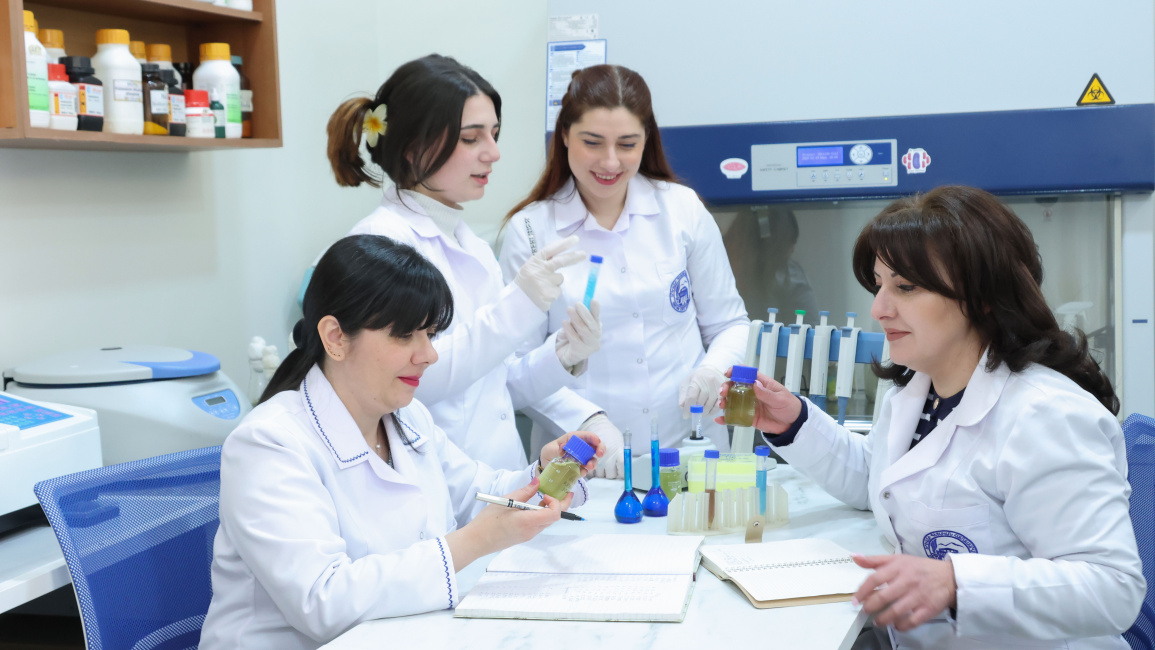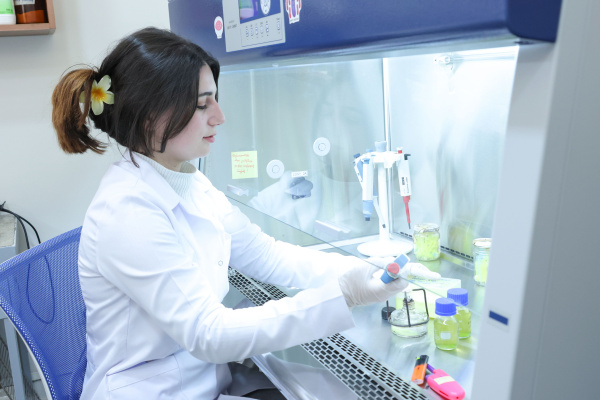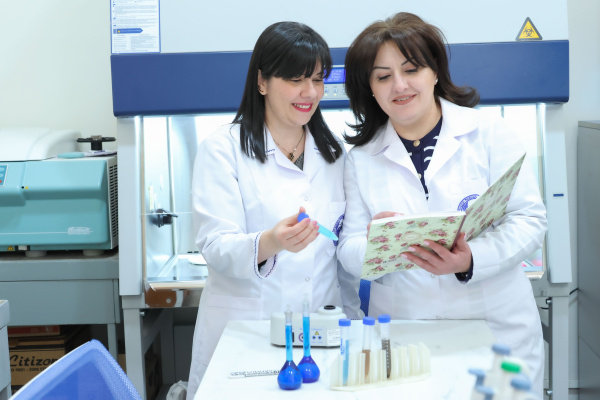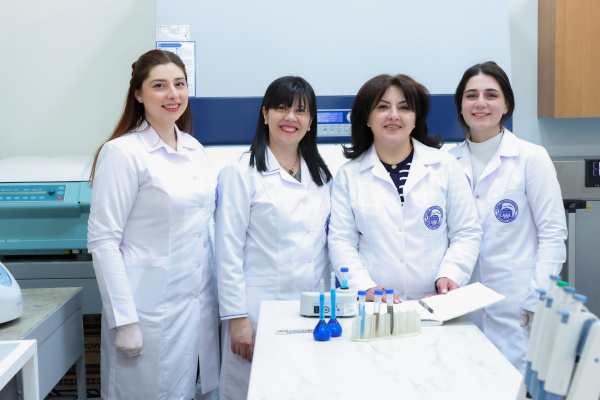February 17, 2025 | 12:41
Science
Research
From tradition to innovation: How YSU scientists are transforming nanotechnology
Innovative research is being conducted at Yerevan State University with the aim of developing ecologically safe nanomaterials based on biological components derived from spirulina (cyanobacteria). This study promises to uncover new opportunities in biomedicine and biotechnology.

The research group led by Lilit Gabrielyan, PhD in Biochemistry, Associate Professor at YSU Chair of Biochemistry, Microbiology, and Biotechnology, focuses on the production of nanomaterials from the photosynthetic pigment phycocyanin of cyanobacteria and the study of their biological properties. The project is being implemented within the framework of the "Program for the Advancement of Women Leaders-2024" competition, organized by the Higher Education and Science Committee of the Ministry of Education, Science, Culture, and Sports of the Republic of Armenia.
Development of the Idea and the Need for Research

Initially, the research group aimed to explore the effectiveness of isolating phycocyanin from spirulina and its potential applications in biomedicine. However, during the research process, a larger question arose—could it be possible to produce nanomaterials that are not only biologically active but also safer and more efficient than those obtained by traditional physicochemical methods?
The research team found out that nanomaterials produced by chemical and physical methods often have toxic effects, and there is a need to develop alternative, green nanotechnological approaches that ensure both effectiveness and safety.
The Potential of Spirulina in Nanotechnology

The researchers are confident that Spirulina platensis can become a key component for innovative solutions. This microorganism is rich in easily digestible proteins, vitamins, and other biologically active compounds, and it contains phycocyanin, a pigment widely used in biomedicine for its anti-inflammatory, antioxidant, and even anti-cancer properties.
"Spirulina has long been used as functional food, but we are exploring its new potential applications that can be used in nanotechnology without harming the environment," says Lilit Gabrielyan.
The Process of Producing Nanomaterials and Preliminary Results

The research team has successfully produced silver nanoparticles, which are currently undergoing antimicrobial activity tests. Preliminary results show that these nanoparticles can effectively suppress the growth of several common pathogenic bacteria.
"We are now focusing not only on the production of nanoparticles but also on studying their biological properties. In the next phase, we will investigate their effects on human blood cells to assess the safety of the nanoparticles," says Lilit Gabrielyan.
Future Goals Related to Anti-Cancer Research
The research team’s plans include exploring the anti-cancer activity of the nanoparticles. This study will be carried out in collaboration with the Basic and Pathological Biochemistry Laboratory at YSU. If the nanoparticles prove to have anti-cancer effects, innovative approaches to cancer treatment could be proposed.
The Importance of International Collaboration

As part of the project, the research group is collaborating closely with Wojciech Kujawski, Head of the Department of Physical Chemistry and Polymer Physical Chemistry at Nicolaus Copernicus University in Toruń, Poland. During the visit to the laboratory of a colleague involved in the research group, it is planned to conduct physicochemical analyses of the nanoparticles, which will help confirm their structural and functional properties.
Science for Health and Innovation
This research is part of a series of projects conducted by YSU scientists, aiming not only to make new scientific discoveries but also to contribute to the development of nanotechnology and biomedicine in Armenia.
"We want our research to have practical value, providing real benefits for people's health," emphasizes Lilit Gabrielyan.
YSU continues to support the advancement of scientific innovations by encouraging the involvement of young researchers and strengthening international collaborations for the development of science and technology.

